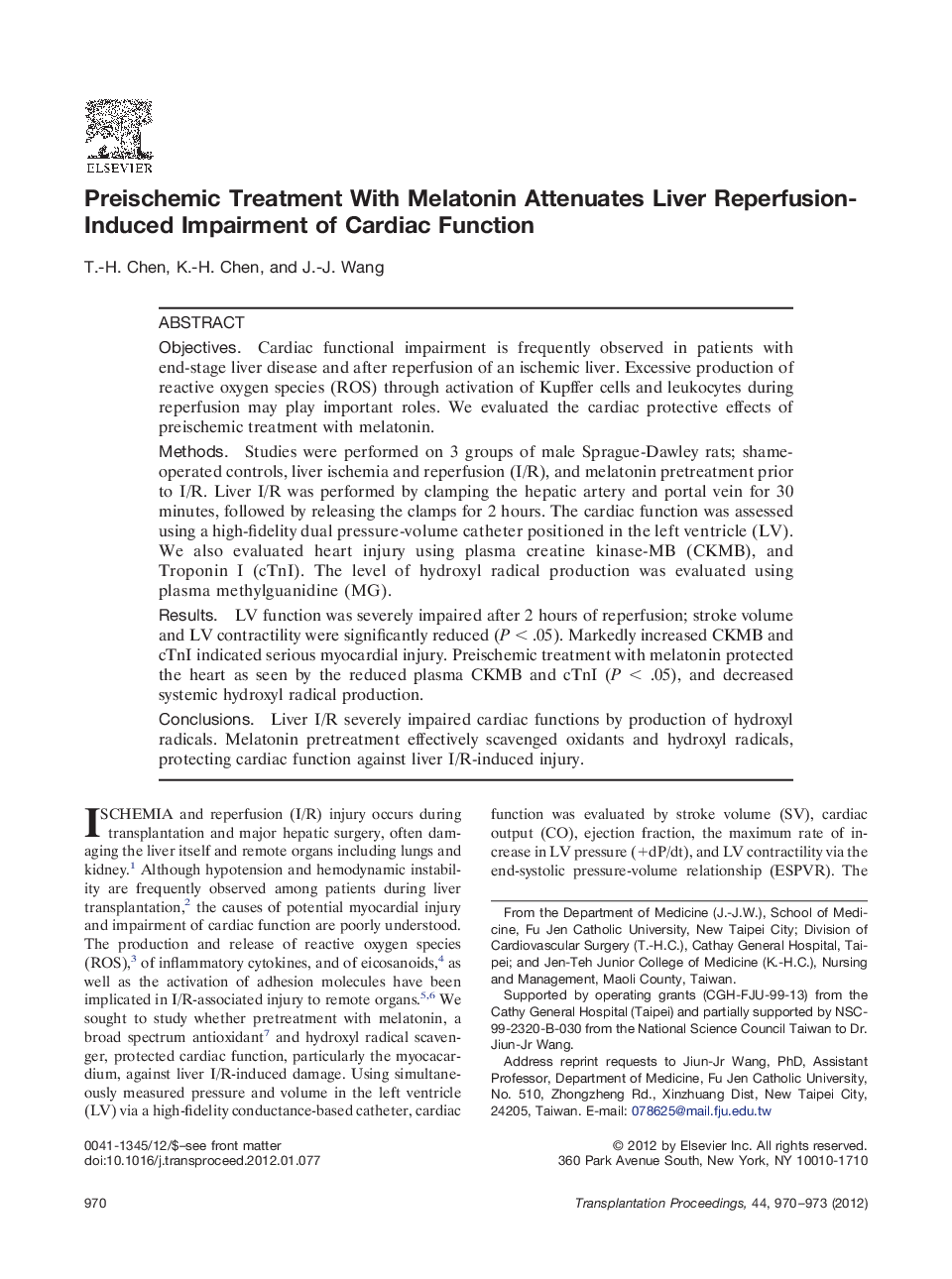| Article ID | Journal | Published Year | Pages | File Type |
|---|---|---|---|---|
| 4256837 | Transplantation Proceedings | 2012 | 4 Pages |
ObjectivesCardiac functional impairment is frequently observed in patients with end-stage liver disease and after reperfusion of an ischemic liver. Excessive production of reactive oxygen species (ROS) through activation of Kupffer cells and leukocytes during reperfusion may play important roles. We evaluated the cardiac protective effects of preischemic treatment with melatonin.MethodsStudies were performed on 3 groups of male Sprague-Dawley rats; shame-operated controls, liver ischemia and reperfusion (I/R), and melatonin pretreatment prior to I/R. Liver I/R was performed by clamping the hepatic artery and portal vein for 30 minutes, followed by releasing the clamps for 2 hours. The cardiac function was assessed using a high-fidelity dual pressure-volume catheter positioned in the left ventricle (LV). We also evaluated heart injury using plasma creatine kinase-MB (CKMB), and Troponin I (cTnI). The level of hydroxyl radical production was evaluated using plasma methylguanidine (MG).ResultsLV function was severely impaired after 2 hours of reperfusion; stroke volume and LV contractility were significantly reduced (P < .05). Markedly increased CKMB and cTnI indicated serious myocardial injury. Preischemic treatment with melatonin protected the heart as seen by the reduced plasma CKMB and cTnI (P < .05), and decreased systemic hydroxyl radical production.ConclusionsLiver I/R severely impaired cardiac functions by production of hydroxyl radicals. Melatonin pretreatment effectively scavenged oxidants and hydroxyl radicals, protecting cardiac function against liver I/R-induced injury.
